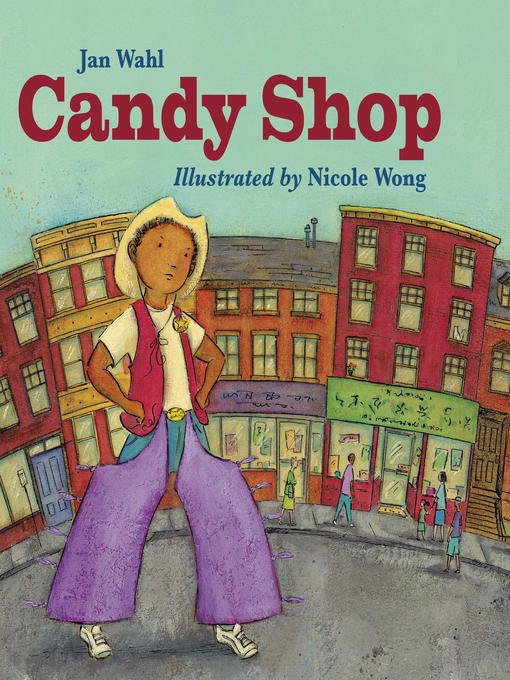
Candy Shop
فرمت کتاب
ebook
تاریخ انتشار
2004
Reading Level
0-1
ATOS
2.5
Interest Level
K-3(LG)
نویسنده
Nicole Wongشابک
9781607341758
کتاب های مرتبط
- اطلاعات
- نقد و بررسی
- دیدگاه کاربران
نقد و بررسی

January 19, 2004
An act of intolerance jolts a child's world in this affecting collaboration between Wahl (Pleasant Fieldmouse
) and Wong (Why Are You So Sad?
). Daniel, a pint-size urban cowboy in bright purple chaps, can't wait to spend his hard-earned allowance at Miz Chu's candy store. Accompanied by his doting Aunt Thelma, the boy confidently navigates his multi-ethnic neighborhood—even the dicier blocks where "some houses are boarded up.... There are empty lots." After gradually introducing readers to Daniel's landscape, the story's climatic revelation seems all the more shocking: someone has scrawled a slur on the sidewalk outside the candy store. The author wisely never reveals the graffiti's content or perpetrator, although Miz Chu is Taiwanese and her fearful despair points to a racial epithet. Instead the book focuses on the characters' steps to make their world feel whole again. Daniel, convinced that a cowboy would "do something," scrubs the words away with soap and water. Wahl beautifully captures the voice and psychological tumult of the young African-American narrator, while Wong's muted palette, careful ink detailing and emotionally astute characterizations serve as the story's anchors. The team doesn't offer any easy, uplifting answers to bigotry, but the modest acts of kindness (Miz Chu refuses payment for Daniel's candy, Aunt Thelma invites the storekeeper home for sweet potato pie) feel both authentic and heartening. Ages 4-9.

March 1, 2004
Gr 1-4-Daniel, an African-American boy dressed as a cowboy, and his aunt are off to do some shopping, including a visit to his favorite place, the Candy Shop. He describes the urban neighborhood they pass through to get to the stores: "Men sit on porches. Some houses are boarded up. We walk faster. There are empty lots." When they finally get to their destination, they find a crowd gathered and the Taiwanese owner, Miz Chu, in tears. Someone has written hateful words on the sidewalk in front of her shop. Daniel desperately wants to help and so he takes a bucket and brush and scrubs away those "dumb words." Wong's detailed, mixed-media illustrations capture the cityscape and the people who inhabit it. Wahl's story shows the love and caring that bind good people together. Aunt Thelma tells the upset woman, "-don't pay no never mind. There's mean, nasty folk in the world, but most are fine as gold." Like the characters in Eve Bunting's Smoky Night (Harcourt, 1994) and Christopher Myers's Wings (Scholastic, 2000), Daniel and his aunt help love triumph over hate. This picture book about tolerance will sit proudly on any library shelf.-Kathleen Whalin, York Public Library, ME
Copyright 2004 School Library Journal, LLC Used with permission.

April 15, 2004
K-Gr. 3. Daniel, a young African American boy, loves being a cowboy and wears the gear even when he goes shopping with Aunt Thelma. The mixed urban neighborhood where they live is full of small shops; in one, Daniel gets a haircut, though he protests cowboys don't do that. When they get to Daniel's destination of choice, the Candy Shop, a big crowd has gathered to read the ugly words written on the sidewalk (not shown) in front of Miz Chu's store. A cowboy, Daniel figures, would do something, so he gets a bucket and a brush and washes the words away. Aunt Thelma sends the crowd home and invites Miz Chu over for some sweet potato pie. The bright colors of the candy in the store reflect the many colors of the neighborhood population, and the clean hues and supple lines of the pictures support Wahl's gentle message of comfort and tolerance.(Reprinted with permission of Booklist, copyright 2004, American Library Association.)

























دیدگاه کاربران